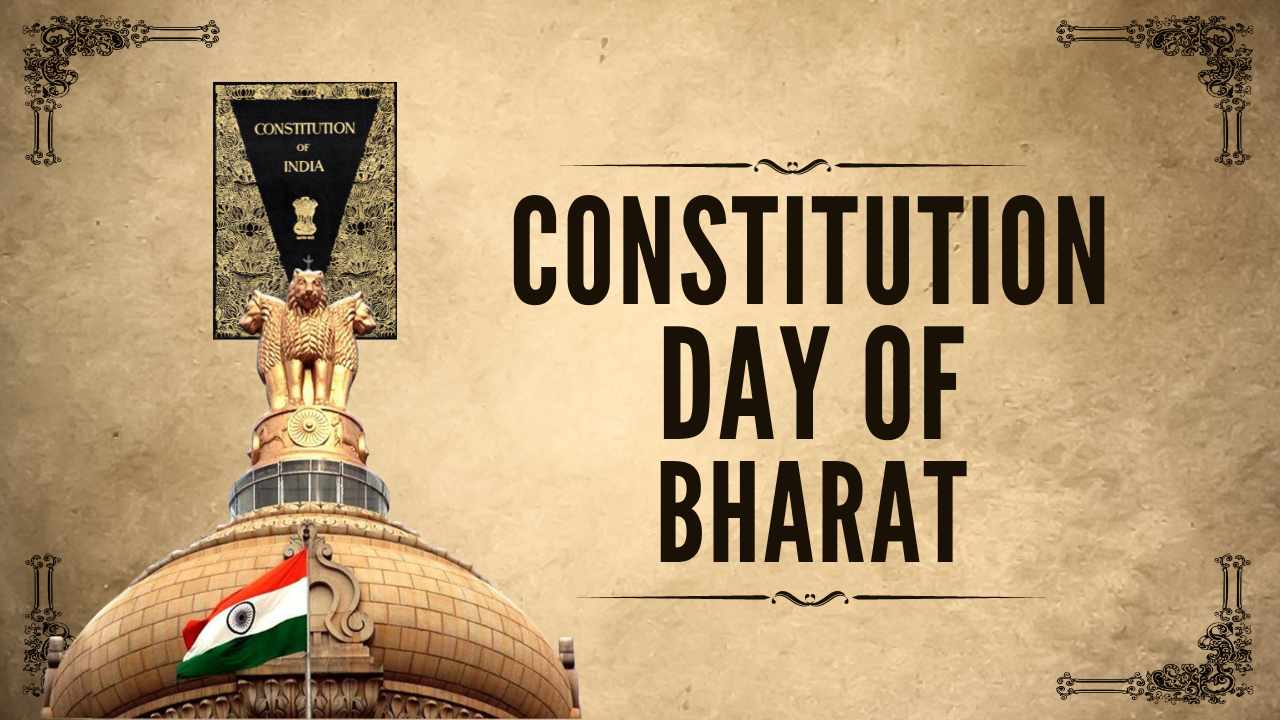
- Home
- About
- Knowledge Center
- Legislative Landscape
- Resources
- #TOGETHERFORBHARA
Constitution of India, enacted more than seven decades ago, is regarded as one of the most progressive, forward looking legal document around the world. The fact that our founding fathers were able to come out with such a visionary document, even when the Country was facing so many socio-economic and developmental issues, bears testament to their outstanding vision and their glorious commitment to creation of a modern, progressive egalitarian society. Constitution Day is celebrated across the country as a celebration of our deep rooted democratic tradition, finding re-manifestation in the document called the Constitution of India. Since its enactment, the Constitution of India has provided a foundation, an architecture for the development of democratic governance, which is evident in various government programs and projects aimed at upholding the constitutional mandate of justice, liberty, equality, and fraternity. The Constitution, with its emphasis on both rights and responsibilities, has paved the way for a series of governance reforms and initiatives, a model which successive governments in the last seven decades and more have tried to follow.
The Government of India has launched several initiatives that aim to give shape to the ideals enshrined in the Constitution, that is, to create an inclusive and equitable society. Although there have been multitude of programs and schemes formulated to bring good governance to the people at various levels, but some deserve special mention for their focus on reaching to the last person of the society.
‘Swachh Bharat Mission’ (Clean India Mission), a nationwide campaign to clean up the streets, roads, and infrastructure of cities, towns, and rural areas is one such flagship program. This mission embodies Article 47 of the Constitution, which emphasizes the duty of the state to raise the level of nutrition and the standard of living and to improve public health.
The ‘Pradhan Mantri Jan-Dhan Yojana’ (PMJDY) is another significant initiative aimed at increasing financial inclusion by ensuring access to financial services, namely, banking savings & deposit accounts, remittance, credit, insurance, and pension in an affordable manner. This scheme aligns with the constitutional ideals of social justice and empowerment of the underprivileged.
The ‘Digital India’ campaign has been pivotal in transforming the country into a digitally empowered society and knowledge economy. It encompasses plans to connect rural areas with high-speed internet networks, promoting e-governance, and making government services more accessible to citizens, thereby fulfilling the constitutional vision of an informed and participative citizenry.
Another noteworthy initiative is the ‘Pradhan Mantri Awas Yojana’ (PMAY), aimed at providing affordable housing to the urban poor, thereby ensuring shelter and dignity for all, which is in harmony with the constitutional right to life under Article 21.
The ‘Make in India’ initiative was launched to encourage companies to manufacture their products in India and enthuse with dedicated investments into manufacturing. It underscores the constitutional principle of economic growth and job creation, vital for realizing the goals of social and economic democracy.
Moreover, the ‘Aadhaar’ project, aimed at providing a unique identity to residents and secure efficient delivery of welfare services, has been instrumental in streamlining governance by leveraging technology to ensure transparency and accountability in line with constitutional governance.
On Constitution Day, these governance initiatives are highlighted to reflect how the Constitution continues to guide India’s social, economic, and political policy, even in the current perspective. The day serves to remind the citizens and the state of their constitutional commitments and to celebrate the strides made in governance that align with constitutional principles.
Legislators play a crucial role in spearheading various national initiatives within their constituencies, guiding citizens towards active participation and realization of the government’s vision. In the context of the Swachh Bharat Mission, they are instrumental in fostering a culture of environmental stewardship, encouraging citizens to dedicate time to ensure cleanliness at the community level by cleanliness campaign at places such as parks, streets and other public places, thereby enhancing community aesthetics and promoting civic pride. Similarly, for initiatives like the Pradhan Mantri Jan-Dhan Yojana, legislators can advocate for financial literacy and inclusion, guiding their constituents in effectively utilizing financial services, which is essential for economic empowerment and societal progress by engaging all sections of the society. Additionally, in the realm of the ‘Digital India’ campaign, they bear the responsibility of ensuring seamless integration of their constituencies into the digital era, particularly by promoting high-speed internet in rural areas and enhancing digital literacy ensuring no one is left behind. Through these diverse yet interconnected roles, legislators not only contribute to the physical and economic upliftment of their regions but also uphold the constitutional values of equality, justice, and inclusive development.
The celebration of Constitution Day is thus not just about remembering the past but also about acknowledging the dynamic nature of India’s democracy and governance. It is about recognizing the efforts made by the government to operationalize the constitutional directives through concrete programs that have a real impact on the lives of its citizens. It’s a reaffirmation of the strength of India’s democracy and a call to continue on the path of inclusive and sustainable development, ensuring that the nation’s governance structures and policies remain responsive to the needs of its people. It is a reminder that Constitution is not just a collection of words, but a living vision of the values and ideals for which our independence was fought.